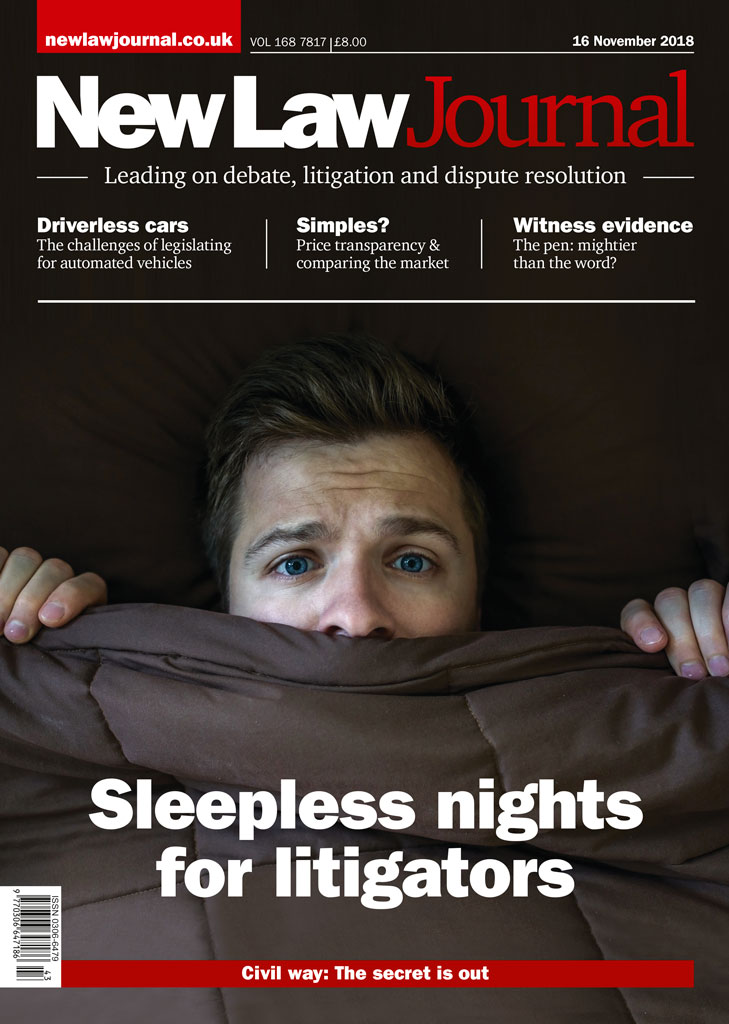
John Cooper QC on legal films & the magical ingredients which mean they will always be top of the bill
Worse for assured shortholds; searching for an adoptee; stay halts service; old maintenance arrears.
Paul Hewitt reports on how to resolve mistakes & ambiguities in wills & the fallout from a geographical error
Despite the push towards transparency in pricing, John Gould explains why comparing legal services like-for-like isn’t so simple
Can the Duke of Wellington stop Brexit?
In the first part of a special series on road traffic accident reform, Nicholas Bevan reports on the challenges posed by automated vehicles
In this month’s employment brief, Ian Smith takes on whistleblowing & exclusion & gives a nod to Sweden
Dominic Regan provides some answers to the civil procedure worries keeping you up at night
Law Society launches guidance papers outlining no deal risks
MOVERS & SHAKERS

NLJ Career Profile: Ken Fowlie, Stowe Family Law
Ken Fowlie, chairman of Stowe Family Law, reflects on more than 30 years in legal services after ‘falling into law’

Jackson Lees Group—Jannina Barker, Laura Beattie & Catherine McCrindle
Firm promotes senior associate and team leader as wills, trusts and probate team expands

Asserson—Michael Francos-Downs
Manchester real estate finance practice welcomes legal director







